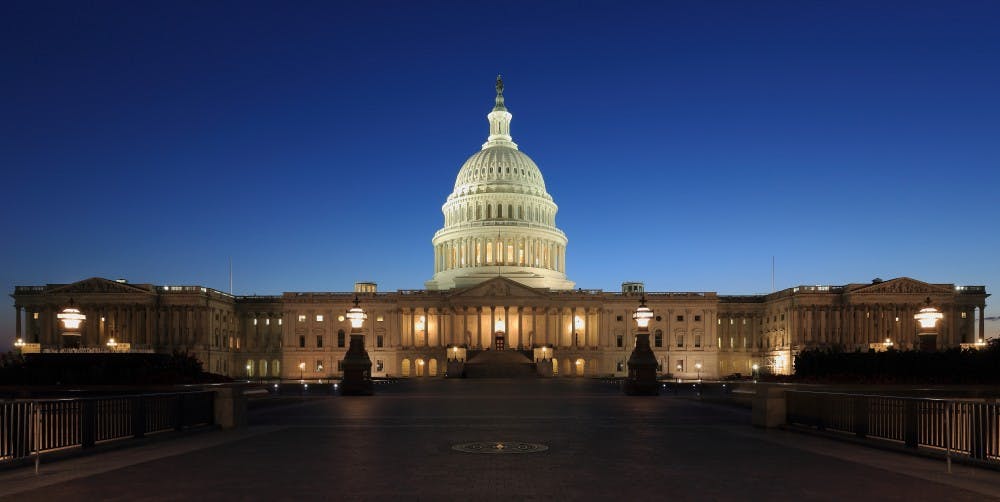Recent weeks have made clear that the United States and China are engaged in a slow-moving yet continually escalating cold war. Whether it be diplomatic and economic decoupling, increased military maneuvering in the South China Sea, or even Secretary of State Michael Pompeo all but calling for a regime change in Beijing, recent rhetoric and actions from both sides have revealed that relations between the two superpowers are at their lowest point since the restoration of ties in 1979.
The impact of these hostilities on each country’s citizens has been less clear. With nationalist leaders and hawkish administrations shaping foreign policy in both nations, American and Chinese citizens have developed growing antipathy toward each other’s governments, political systems, cultures, and global influence alike. At the same time, the dynamic trade and commercial interdependencies that exist between the U.S. and China mean that each nation’s economy could not survive without the other. Simply put, bilateral relations are too big to fail.
Thus, the United States and China are trapped in a diplomatic purgatory. Leaders on both sides talk and act as if they are on the warpath, inflaming nationalist and xenophobic sentiment among their populaces, while privately acknowledging the catastrophic implications of open conflict between the two nuclear-armed powers.
Where does this all leave Chinese Americans? How are we to avoid becoming victims — discarded, brushed-over collateral damage — of a rapidly collapsing U.S.-China relationship? We see, on a near daily-basis, brutally harsh rhetoric condemning China coming out of the White House, executive agencies, and even from the mouth of the President himself. Indeed, most of us are all too aware that for months, the President and his subordinates have taken pleasure in referring to COVID-19 as the “China virus,” the “Chinese virus,” and even flagrantly offensive names such as the “Kung Flu.”
For most of us, “Kung Flu” was an insult left behind on the elementary school playground. Yet here we are, seeing the President of the United States gleefully repeat the slur. The administration, in its attempt to blame the pandemic on the Chinese Communist Party (CCP), has implicated anyone of Chinese descent.
The effect such rhetoric has had on countless aspects of American society — from the general public’s reactions to policymakers’ decisions — has been dramatic. Chinese Americans, and even non-Chinese Asian Americans, have become frequent targets of racist attacks, confrontations, public shaming, and discrimination.
Federal agencies have targeted Chinese nationals with policies restricting immigration, travel, study, and work in the United States. Legislation permanently banning many Chinese students from studying at U.S. universities has been introduced in Congress. Consulates of the People’s Republic of China have been closed, and Chinese diplomats have been deported.
“China hawks,” while deploring racism against Asian Americans, would tell you that such action is absolutely necessary. And they are right. The CCP has much to answer for, and it is critical that the United States holds the party accountable for its rampant human rights violations, brutal authoritarianism, unfair trade practices, intellectual property theft, state-sponsored espionage, violations of international law, and so much more. The CCP’s behavior towards Hong Kong, Tibet, Taiwan, and the Muslim Uyghur minority in Xinjiang demands a robust response from the United States.

Nevertheless, the U.S. government has a duty to ensure that any conflict with the Chinese government does not contort into racist attacks on Chinese Americans or Asian Americans at large. In this regard, the administration has thus far failed. If the President and leaders in the federal government continue recklessly associating individuals of Chinese ancestry with the CCP, the consequences could be too severe to imagine. From the Chinese Exclusion Act to the internment of over 100,000 Japanese Americans during World War II, American history knows all too well the dire repercussions of domestic anti-Asian sentiment.
I am heartened by the words of President Eisgruber ’83 in his February “State of the University” letter, in which, while recognizing the security risks posed by Chinese government influence in U.S. universities, research, and academia, he declared, “Racial and national stereotypes, however, are no more acceptable in this domain than in any other, and do not reflect the community we strive to build at Princeton.”
Nevertheless, as many students prepare to return to campus, the University must ensure that Asian American students are protected from instances of racism and pandemic-fueled hate.
The weeks leading up to the mass closure of college campuses in March saw a nationwide uptick in insensitive and discriminatory incidents targeting Asian Americans. Whether such behavior is motivated by disdain for the CCP, fears of COVID-19, or preexisting bigotry, Princeton has a responsibility to prevent it.

As the University welcomes some students back to campus in less than a month, it must release an updated statement reflecting its continued commitment to safeguarding Asian and Asian American students. It is absolutely possible for Princeton to uphold core academic principles such as freedom of speech and diversity of thought — values antithetical to the CCP — while also defending its students from misdirected race-based attacks and discrimination.
Additionally, President Trump and members of his administration must immediately correct their rhetoric to clearly distinguish between the CCP and people of Chinese ancestry when criticizing China. It’s absolutely inexcusable.
A common refrain parroted by Chinese political leaders and state media is “The party leads everything.” It is understood to mean that the Chinese people and the Communist Party are permanently intertwined. We in the United States must take care to never make such a false equivalence between peoples and their governments.
Matthew Wilson is a first-year from Ashburn, Va. He can be reached at mxwilson@princeton.edu.








